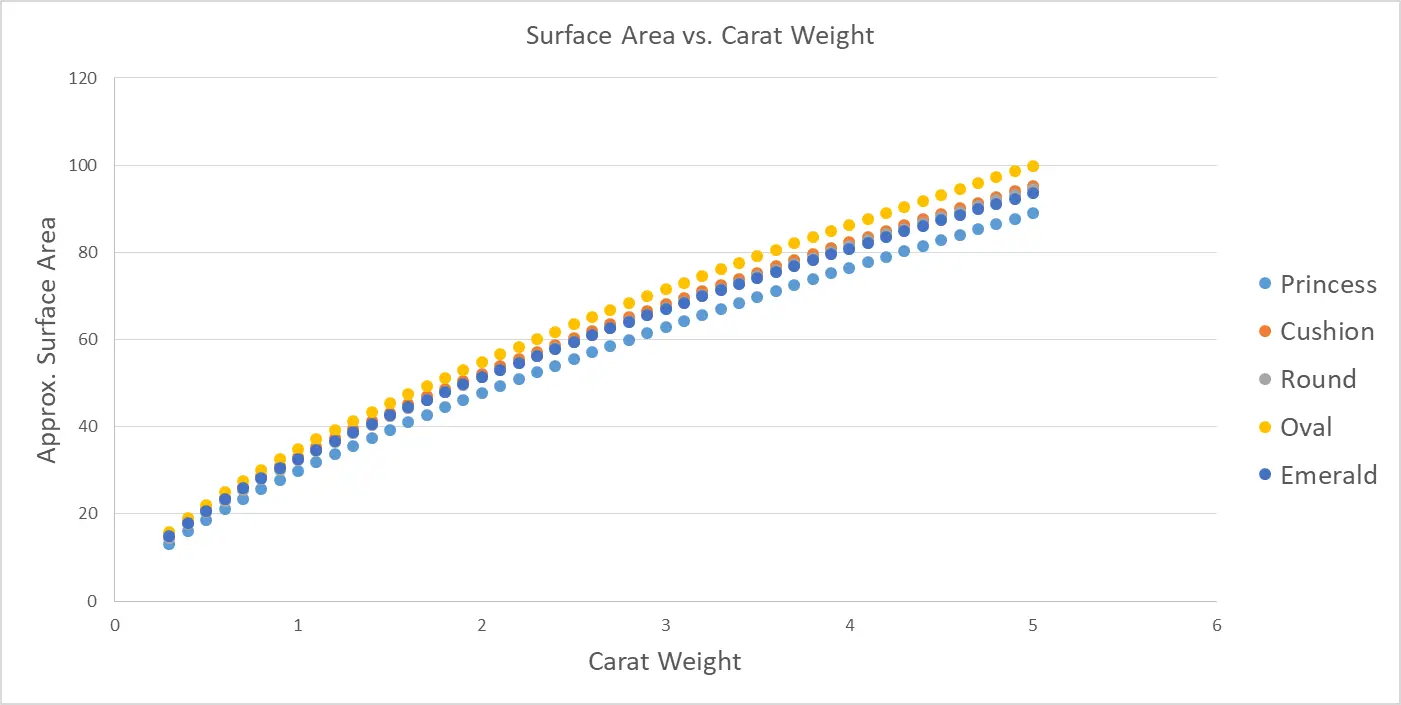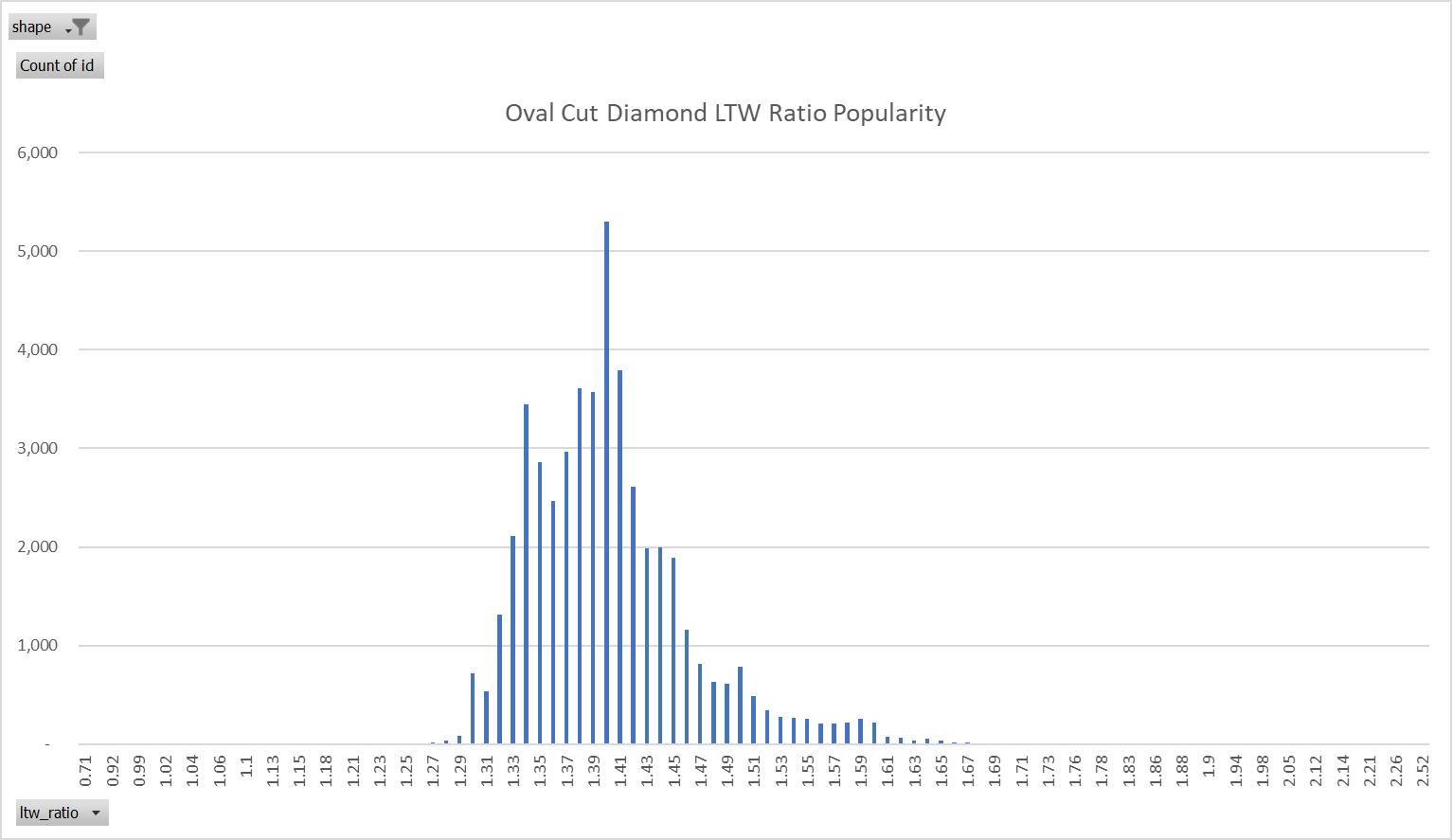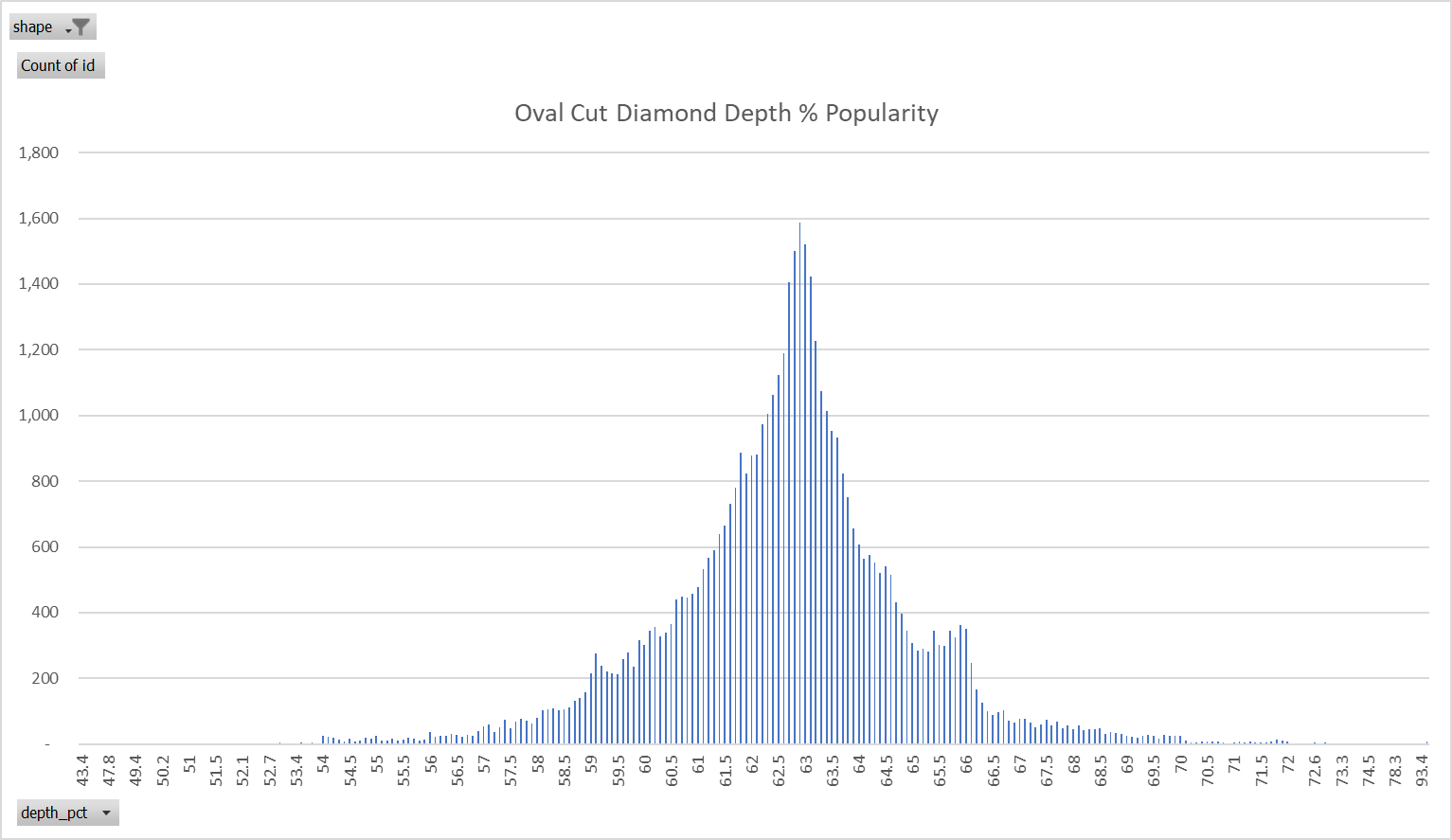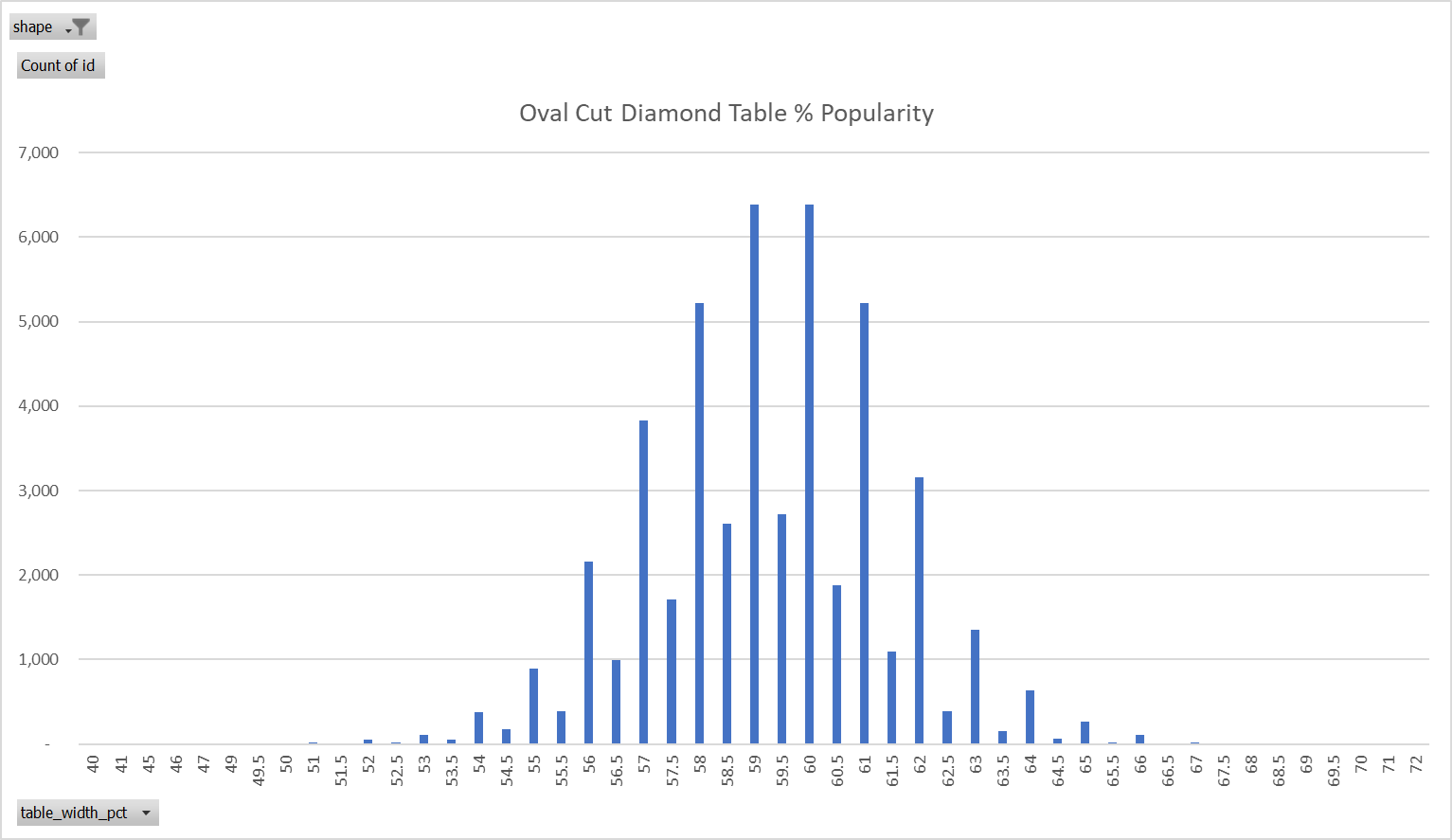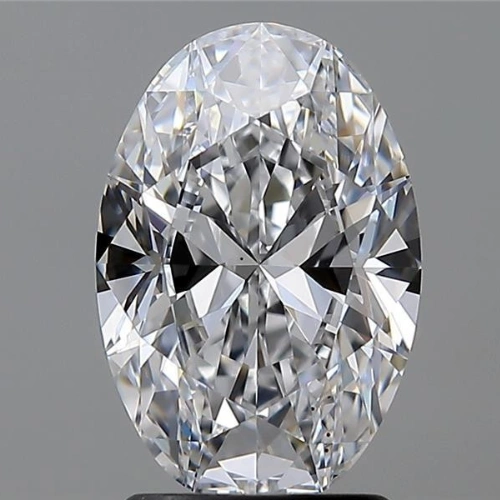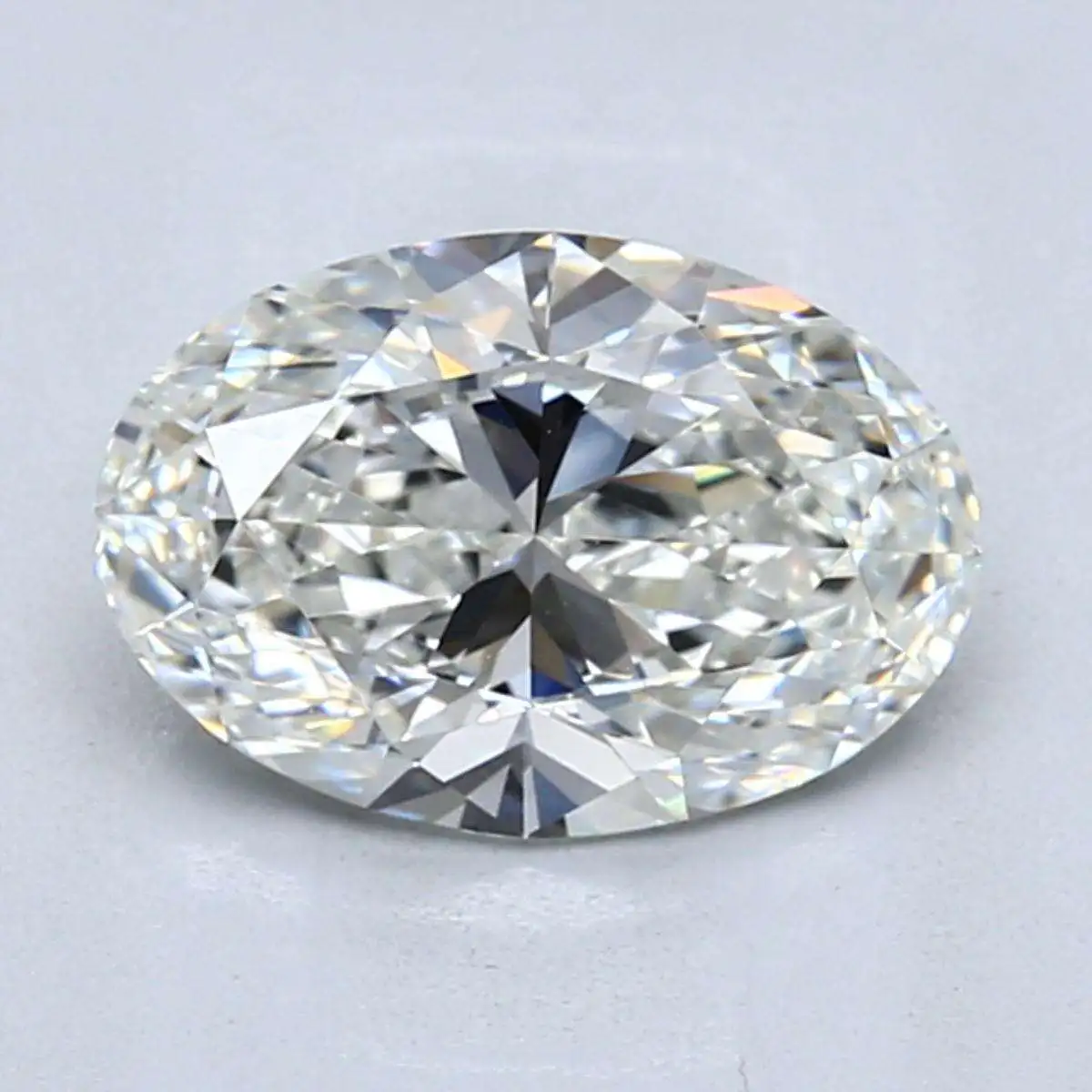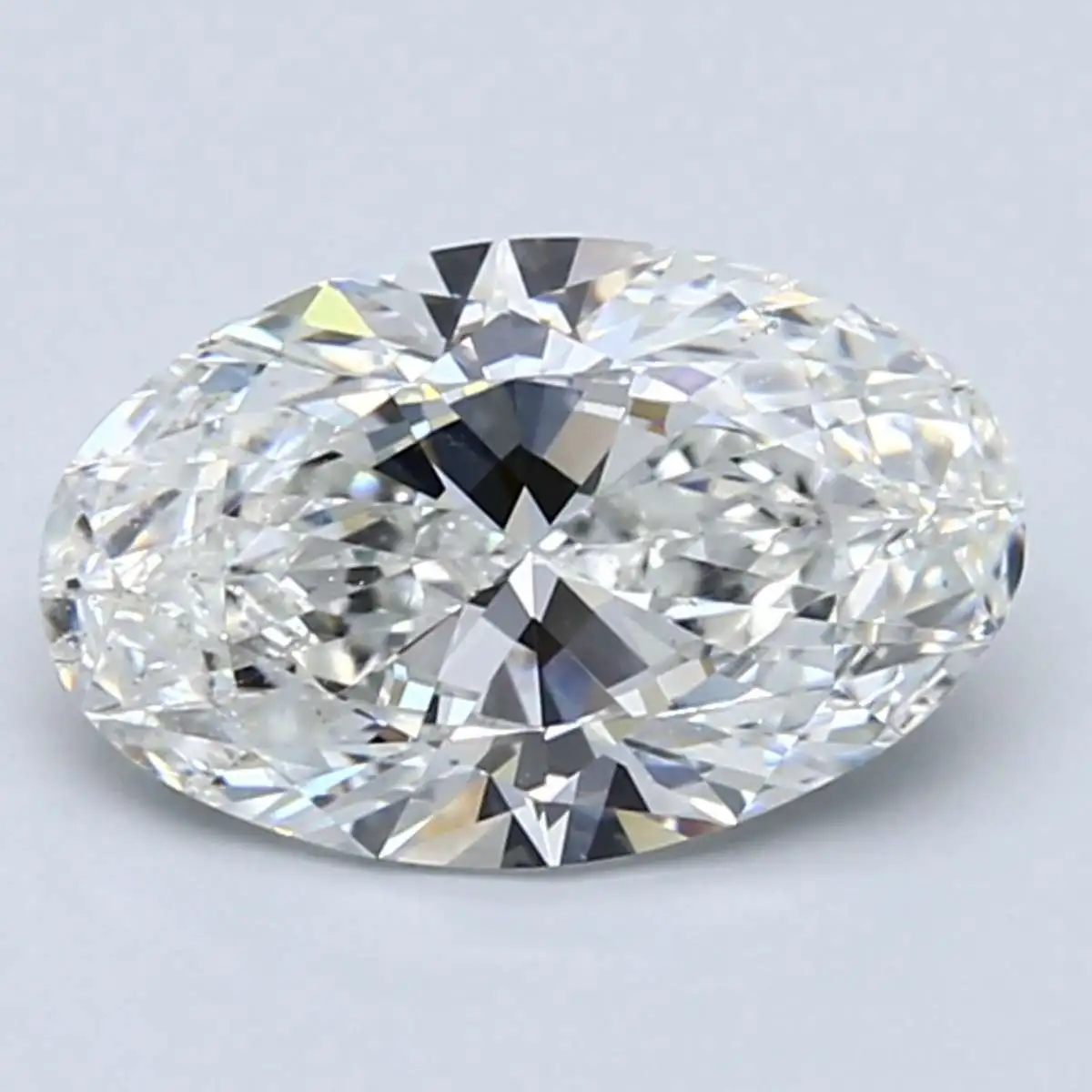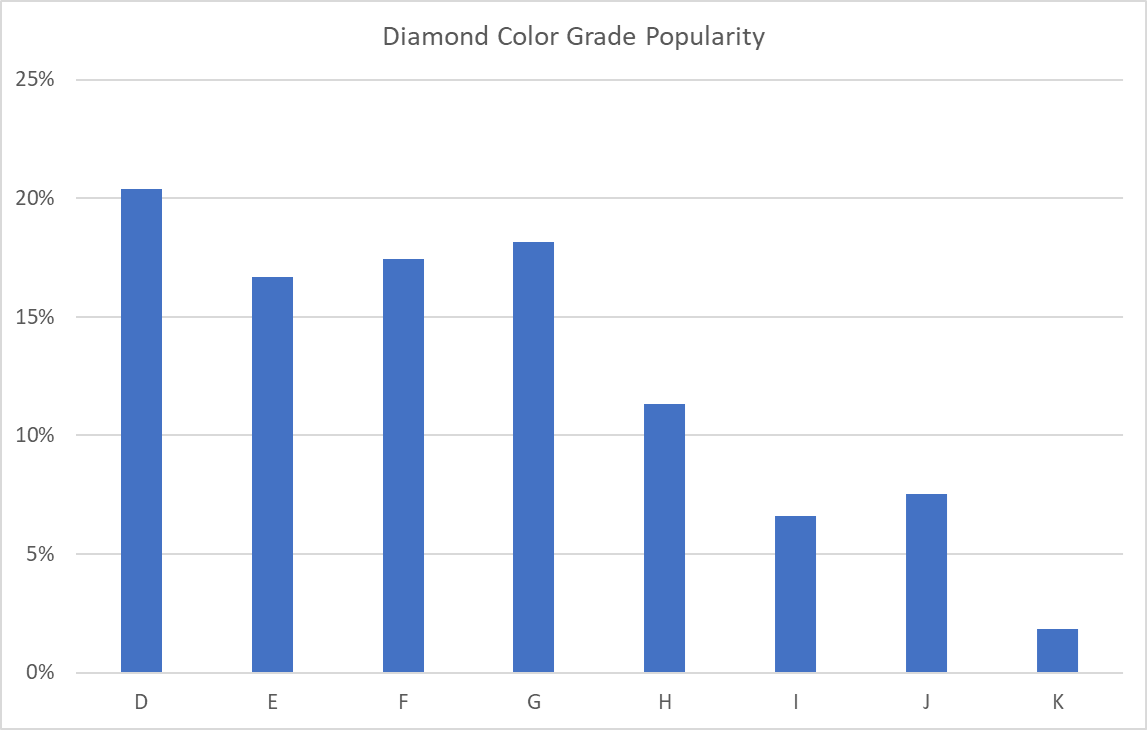June 23rd 2022
The Oval Cut Diamond Guide
By Devin Jones
Oval Cut Diamonds
Oval cut diamonds are the second most popular diamond shape for today’s diamond buyers and the most popular fancy shape (non-round shapes), and for good reason. Oval diamonds are an elegant and elongated alternative to their most popular cousin the round cut, while still offering many of the benefits of a round cut diamond such as durability (no fragile corners like a princess cut would have) and brilliance (ovals are cut to sparkle).
The elongated shape of an oval cut diamond offers buyers an opportunity to personalize the look of their diamond. For example, some diamond buyers prefer a more elongated look and others prefer a slightly rounder oval cut diamond. Picking out the perfect length to width ratio for your aesthetic is a crucial part of the experience, see our guide to the ideal oval cut diamond proportions for more details.
Another unique benefit of oval cut diamonds is that they can make fingers appear slightly slimmer, due to their elongated design. Oval cuts also tend to look larger than round cut diamonds of the same carat weight, due to their cutting style which maximizes surface area relative to weight.
Oval cut diamonds (yellow dots) have the largest surface area per carat of any diamond shape.
Pros & Cons of Oval Cut Diamonds
To summarize the points from the previous section, here are the most important pros & cons to consider when shopping for an oval cut diamond.
Oval Cut Pros
- No fragile corners (compared to princess cut, etc.)
- Less expensive than round cut diamonds
- More unique than round cut diamonds
- Elegant & sophisticated design
- Largest surface area per carat (looks bigger)
- Slimming appearance (great style for wider fingers)
Oval Cut Cons
- Fierce competition (can be hard to find larger ovals)
- Less selection than round cut diamonds
StoneAlgo carries the largest selection of oval cut diamonds available anywhere by partnering with top-rated online jewelers like Brilliance, Whiteflash, and more to help diamond shoppers find their perfect diamond. See all oval cut diamonds in our oval cut diamond search engine.
Oval Cut Diamond History
According to the GIA, the brilliant faceting style (a special cutting style that maximized sparkle) originated in the 1700s and led to the development of oval cut diamonds (although cushion cut diamonds were far more popular at this time). Oval diamonds were first mentioned in literature in the 1800s and exploded in popularity in the late 1950’s.
Today, the oval cut diamond is the 2nd most popular diamond behind only the ultra-popular round cut diamond shape, receiving 16% of total search volume to the round cut’s 56%. The next most popular shapes are cushion (8.7%), emerald (5.6%) and radiant (5.3%).
Ideal Proportions for Oval Cut Diamonds
Oval cut diamonds tend to be "brilliant cut" with 58 facets (57 if the diamond is cut without a girdle) arranged in a particular pattern designed to maximize sparkle. Brilliance is the word diamantaires use to describe sparkle, hence the name.
At this point you may be asking yourself which cut grade or set of dimensions is best for an oval cut diamond. Currently the GIA does not assign a cut grade to oval cut diamonds like it does for round cut diamonds, though you'll often find a cut grade listed alongside oval diamonds at various online jewelers. These cut grades are based on the jeweler or dealers own opinion of the diamond's cut quality, typically a synonym for brilliance or sparkle.
If we can't rely on cut grades to help us select the most sparkly oval cut diamond, what can we do to ensure we make a "brilliant" purchase? For starters, the AGS does supply cut grading parameters for oval cut diamonds which you can explore here. The cut grading tables cover the following ranges:
AGS Oval Cut Grading Ranges
- Table: 50% - 65%
- Length to width ratio: 1.3 - 1.8
- Lower Girdle Height: 80%
- Upper Girdle Height: 64%
- Girdle Thickness: 3%
Our own analysis of diamond shopping behavior on StoneAlgo has revealed a more interesting range of characteristics
Oval Cut Length to Width Ratio (LTW Ratio)
The most popular length to width ratios for oval cut diamonds tend to be between 1.35 and 1.45 based on the number of oval diamonds available in our database. The most popular length to width ratio is 1.40 (length divided by width).
Oval Cut Depth Percentage
Oval cut diamond depth percentages tend to range from 59% to 66%. The most popular depth percentage is 63%.
Oval Cut Table Percentage
The ideal table percentage for ovals tends to fall in the 56% to 62% range according to the data shown above. The most popular table percentages are 59% and 60%.
Oval Cut Diamond Prices
Below are prices for Oval Cut diamonds as of February 25, 2026. Prices are based on StoneAlgo's proprietary diamond price index calculation.
| Carat Weight | Price | Price Per Carat |
|---|---|---|
| 0.5 | $1,096 | $2,192 |
| 1 | $3,882 | $3,882 |
| 2 | $19,770 | $9,885 |
| 3 | $47,868 | $15,956 |
Oval cut diamonds cost about 33% less than round cut diamonds and are priced similarly to other fancy shapes. This is interesting given the fact that oval cut diamond look larger than round cut diamonds of the same carat weight because they have a larger surface area to weight ratio. As you can see, oval cut diamonds are a great value relative to round cut diamonds.
For details on the current prices of oval cut diamonds, please use our diamond prices tool.
- 0.5 carat oval cut diamond prices
- 1 carat oval cut diamond prices
- 2 carat oval cut diamond prices
- 3 carat oval cut diamond prices
Avoiding Bow Tie Effect
One of the most common concerns amongst oval cut diamond shoppers is how to avoid the dreaded bow tie effect. The oval cut diamond bow tie effect is a dark bow tie shaped pattern that appears prominently on the tables of some oval cut diamonds. The effect is caused by light reflecting and being impeded from reflecting within the diamond, specifically by the facets that act as tiny mirrors within the stone. Nearly every oval cut diamond experiences some degree of bow tie effect, but you should avoid diamonds that have a very significant and obvious dark patterning like the below.
Click the above diamonds for more details
Oval Cut Diamond Color Grades
The most popular oval cut diamond color grades are D, E, F, and G color with a steep drop off for I, J, and K color. The reason for this steep drop off is that color saturation is not noticeable above a certain point, and the pivotal point at which consumers feel this color saturation is noticeable appears to be the I color grade.

